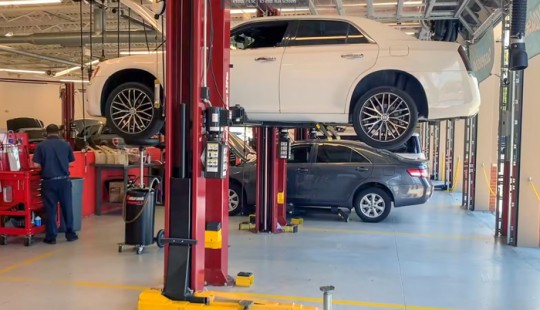AAA Urges Thanksgiving Drivers To Ensure Their Vehicle Is Ready For The Road
November 22, 2023
Nearly 48.3 million Americans will hit the road this Thanksgiving. Yet some may travel in a vehicle that isn’t ready for an extended road trip.
AAA estimates 400,000 Americans will need roadside assistance during the Thanksgiving holiday weekend. The three most common issues are dead batteries, flat tires, and lock outs.
“Most vehicle problems like these could be prevented with a pre-trip vehicle inspection,” said Mark Jenkins, spokesman, AAA – The Auto Club Group. “Before you hit the road this Thanksgiving, make sure to check everything from the battery to the tires. That could make the difference between spending Thanksgiving at the table or on the roadside.”
TOP 5 ITEMS ON A VEHICLE CHECKLIST
- Tires
- Battery
- Brakes
- Fluids
- Wiper Blades
TIRES ARE MOST IMPORTANT
If neglected, tires could create serious consequences – ranging from a simple flat to a dangerous blowout on the highway. In 2020, there were 3,069 tire-related crashes in Florida, resulting in 184 serious bodily insures and 61 fatalities, according to the Florida Department of Highway Safety and Motor Vehicles.
Check your tires once a month, at minimum, and before taking a long trip.
Inspect all four tires. Since some new vehicles don’t come with a spare tire, know whether you have one and if it’s inflated too. Look for cuts, gouges or sidewall bulges. Drivers should pay special attention to both tire inflation pressure and tire tread depth:
- Check Tire Inflation Pressure – Check tire pressure when the car has been idle and tires are cool. Inflate as needed to the vehicle manufacturer’s recommended pressure. You will find it listed in the owner’s manual and on the sticker on the driver side door. Do NOT use the number on the tire sidewall.
- Check Tire Tread Depth – Insert a quarter upside down into the grooves. If you see the top of George Washington’s head, it is time for new tires. Be sure to check in multiple spots across your tire to diagnose any uneven wear patterns.
BATTERIES ARE VULNERABLE TO TEMPERATURE CHANGES
Changes in temperature can take a toll on your car battery. Have a service professional do a battery check to determine remaining capacity.
Symptoms of a dying battery include:
- Car hesitates or slowly cranks when you’re trying to start it
- A grinding, clicking or buzzing sound when you turn the ignition
- Dim headlights, especially when your car is idling
- The battery warning light is illuminated
- Corrosion, cracks or bulges on your battery
OTHER IMPORTANT ITEMS IN YOUR VEHICLE CHECKLIST
- Brakes – Listen to and feel the brakes – If you hear a grinding sound or feel a vibration when applying the brakes, take your vehicle to an auto repair shop for a brake inspection.
- Top off engine oil and other fluids – Check that engine oil, coolant, brake, transmission and power steering fluids are at the correct levels for safe vehicle operation. When adding fluids, use products that meet the specifications listed in the owner’s manual.
- Replace wiper blades and replenish windshield cleaner – Rubber wiper blades naturally deteriorate over time. If wipers streak or fail to clear the windshield thoroughly, replace the blades. Fill the windshield washer reservoir with fluid formulated to remove insects and other debris, and test to make sure the nozzles spray adequately.
- Replenish emergency kit supplies – AAA recommends keeping a well-stocked emergency kit in your vehicle. Include a cellphone charger, flashlight and extra fresh batteries, first-aid supplies, drinking water, non-perishable snacks for people and pets, car battery booster cables, emergency flares or reflectors, a rain poncho, a basic tool kit, duct tape, gloves and shop rags or paper towels.
WHAT TO DO IF YOUR VEHICLE BREAKS DOWN
- Pull off the road to a safe place
- Turn on emergency flashers to notify other drivers
- Call AAA for roadside assistance
- Stay with your vehicle, unless it is unsafe to do so
Drivers who find themselves stranded can reach AAA by calling or texting “HELP” to 1-800-AAA-HELP




Comments